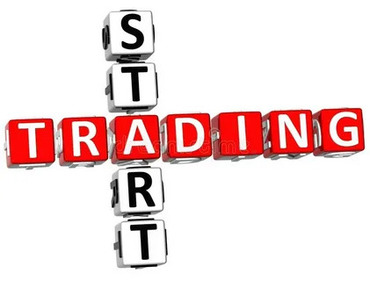Why is it profitable to invest in stocks and how to do it right?
 23 / 05 / 22
Visitors: 624
23 / 05 / 22
Visitors: 624
Buying stocks is a risky activity, and before you get started, it's important to understand how the stock market works and its dangers. How do you invest in the stock market? What safety rules must be followed? We explain!
Action: what is this?
A share is part of a company's equity. When you buy stocks, you invest in a company and receive dividends when it makes a profit.
You can buy shares in two types of markets:
- Primary Market: The market in which a company is listed on a stock exchange and offers shares for the first time at an Issue Price set by the company in agreement with the authorities , who are responsible for regulating the market.
- Secondary Market: A market in which stocks are traded between investors at a price that fluctuates based on supply and demand. You can only buy shares there if another investor is offering them for sale.
In other words, you buy "new" stocks on the primary market and "used" stocks on the secondary market.
While it is important to differentiate between the two markets, it is important to remember that they are closely related. In fact, new shares in the primary market are intended to be used in the secondary market: therefore their value should fluctuate according to supply and demand.
Buying Stocks: Questions to Ask
Before you start buying stocks, make sure this type of investment is right for you by asking yourself a few questions:
- Are you willing to accept the concept of risk and expose your savings to losses?
Despite any promises of profitability that may be made to you, buying shares always involves risk and you can never be sure of getting back the full amount invested.
- Can you invest these savings for the long term?
To invest part of your savings in stocks, you must wait for them to rise in price before selling them on. This means you are tied to stock market fluctuations and the Autorité des Marchés Financiers recommends investing in assets for at least five years.
- How much time are you willing to devote to monitoring your investments?
The acquisition of shares can be made by direct purchase or by joint investment.
With an outright buy, you decide which stocks to buy and then carefully monitor the economic news to make appropriate investments and anticipate the right time to sell and buy.
In collective investment schemes, you invest in a fund or SICAV (Variable Capital Investment Company) and then own a stake in an already formed portfolio by combining shares from different companies. The wallet is managed by a professional.
Buy shares: what steps to take?
To buy shares, you must go through a financial intermediary of your choice (bank or online broker) and have a custody account, a share savings plan (PEA) or even life insurance if it is a collective investment scheme. Your actions will be reduced on these media.
If you decide to buy directly, you must then place a stock market order with your financial intermediary, i.e. a purchase or sale request for a specific action.
If you opt for a collective investment scheme, your preferred contact remains your financial intermediary, whom you must contact in order to purchase one or more shares in an investment fund or SICAV.
While there is no such thing as zero risk, you can still protect yourself from permanent loss by diversifying your investments.
So you can mix stocks and bonds and build a diversified portfolio. The Financial Market Authority recommends "buying at least ten stocks from different economic sectors."
If you have any doubts about the reliability of a financial intermediary or investment fund, please contact the Epargne Information Service of the Financial Markets Authority on 01 53 45 62. 00 .
Buy shares: how much does it cost?
While a savings account is free, buying shares incurs a cost.
In fact, securities accounts, PEAs, and life insurance contracts all have account maintenance fees associated with them. It is therefore very important to compare the offers made to you, as they are terms of contract.
Moreover, every stock exchange order is subject to a brokerage fee. When you purchase shares in a collective investment scheme, you must pay the initial fee and the ongoing fee. .p>
All of these additional costs should be factored into your savings plan.
What is the tax rate on your shares?
Dividends and capital gains on the sale of shares are taxable. You are subject to a Single Flat Fee (SFT) of 30% (including 12.8% for income tax and 17.2% for social contributions).
However, if it turns out to be more interesting, you can choose a progressive income tax scale. This option will then apply to all of your investment income (savings account interest, stock dividends, etc.).
Please note that if you opt for progressive income tax, your dividends and capital gains will still be subject to 17.2% social security contributions.
A complete list of unscrupulous brokers, that we do not recommend working with is available here.







